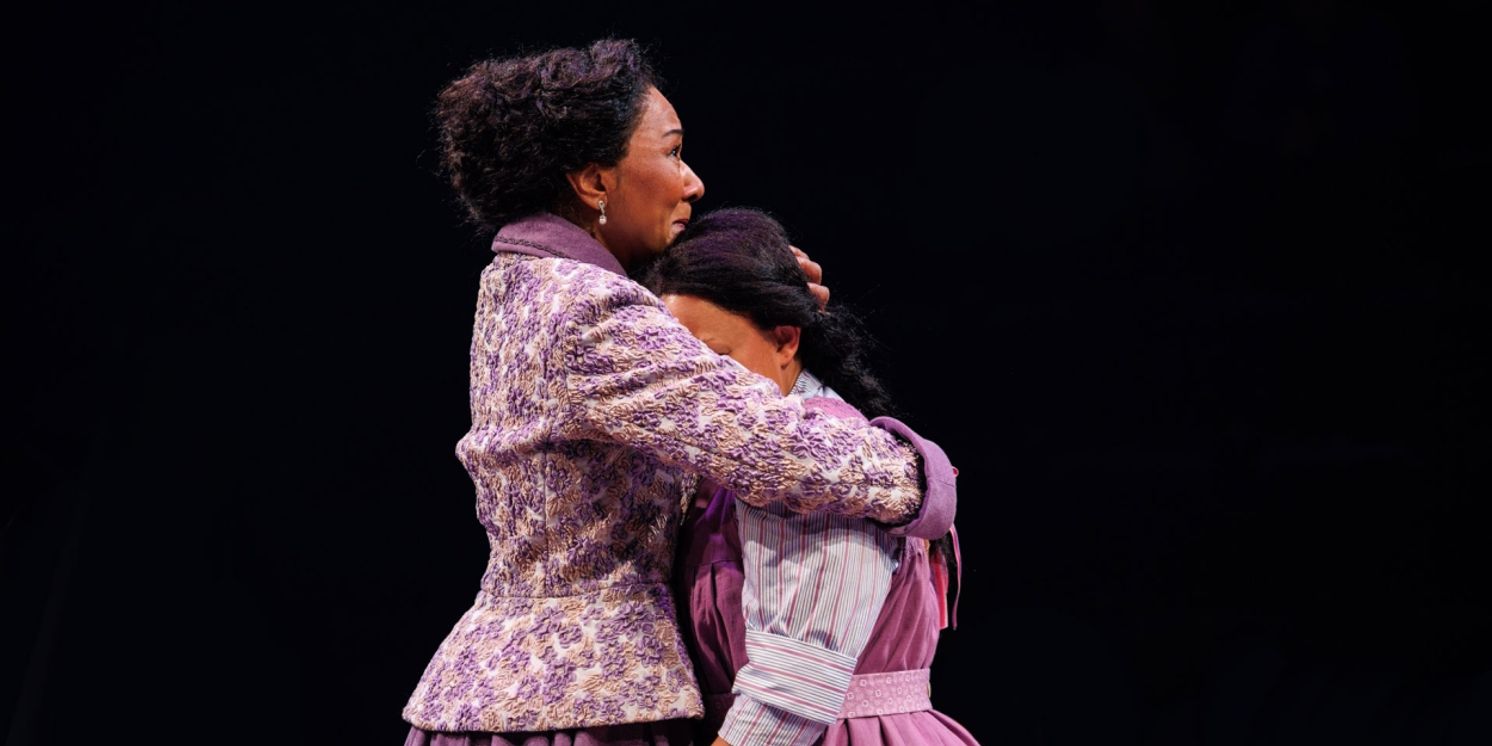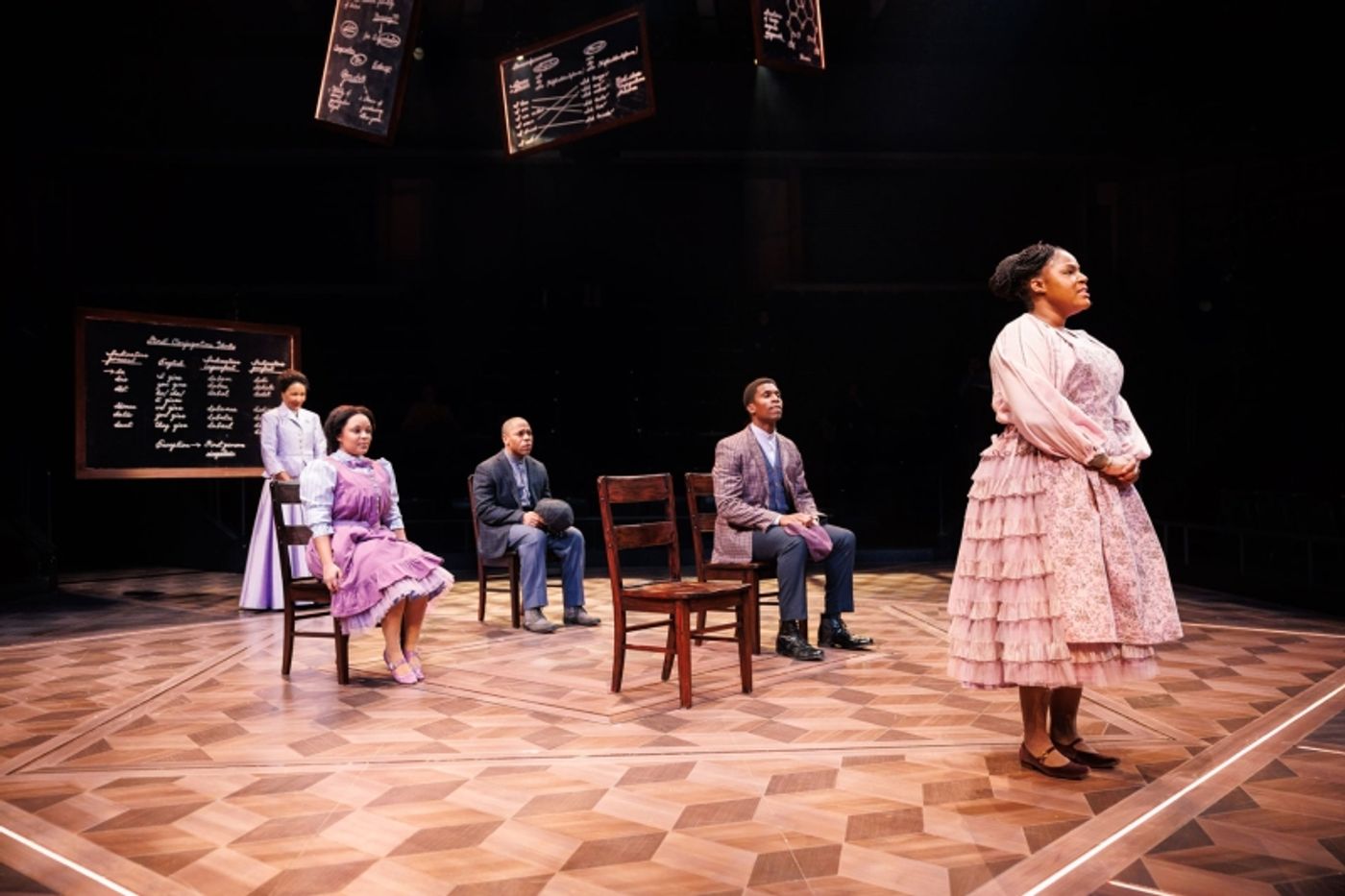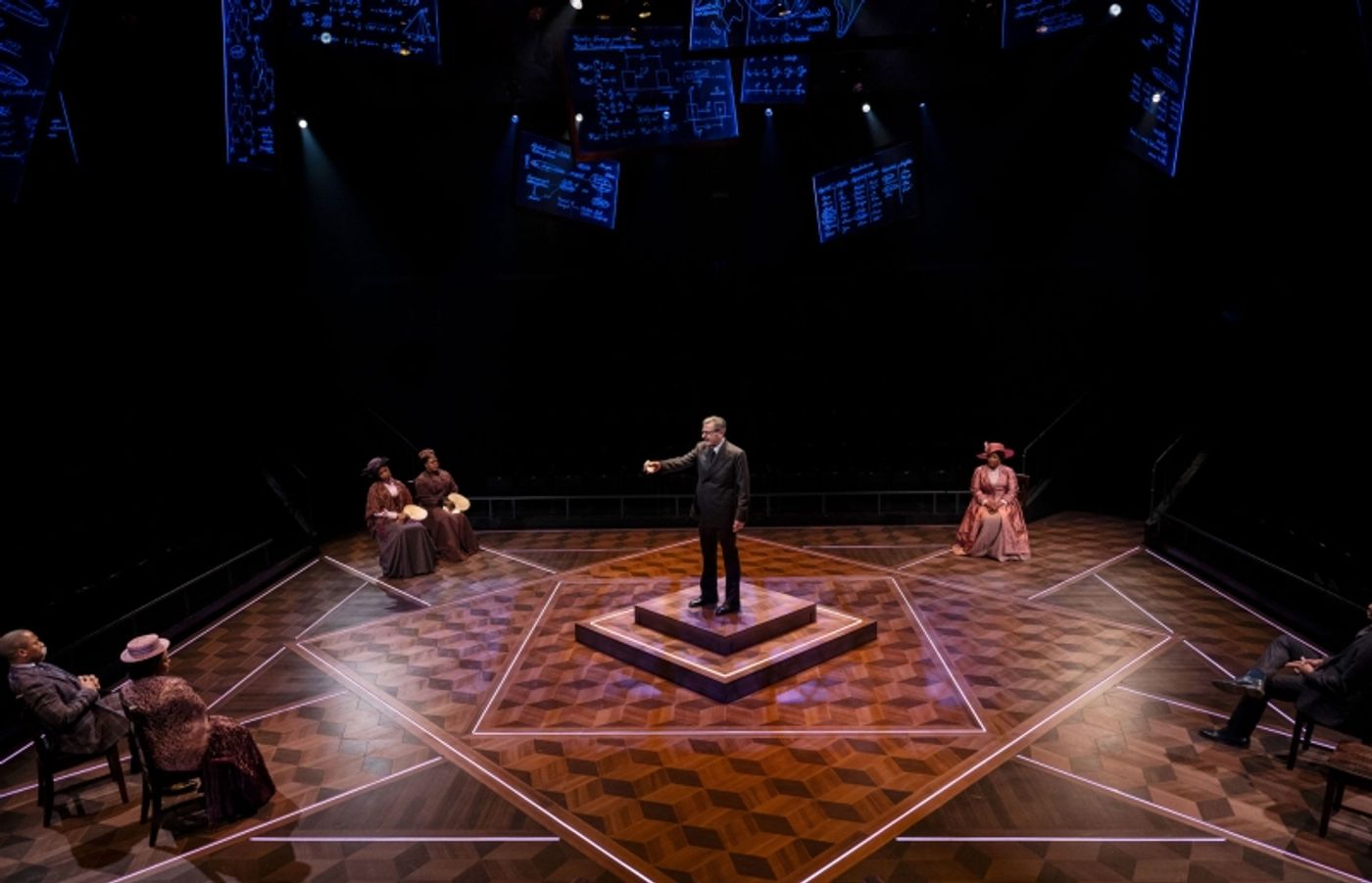Review: TEMPESTUOUS ELEMENTS at Arena Stage
Play about brilliant educator Anna Cooper provides a much-needed history lesson.

Tempestuous Elements is the latest in Arena Stage’s Power Plays, a series of commissioned works that have covered a broad array of historical and topical characters, from Mary Todd Lincoln to John Quincy Adams to Justice Antonin Scalia. Placed among such figures, Anna Julia Cooper—the subject of this play—occupies a somewhat unusual place in our current cultural landscape. She has been greatly influential, to the point that many acknowledge her as the mother of Black Feminism, and her national legacy prominent and long lasting enough to see her portrait grace commemorative stamps and her words printed on our passports. And yet, it must be said that we lack a real awareness of Cooper. The details of who she was, what she accomplished, and the broader struggle to build and sustain African American educational institutions decades before Brown v. Board of Education are all tragically under-taught and little understood in today’s America. Boldly stepping in to help rectify that is playwright Kia Corthron, who chose Cooper’s achievements and setbacks while principal and teacher at DC’s M Street School, one of the nation’s first high schools for African Americans, as the focus of her work.
Anna Julia Cooper was born into bondage in Raleigh, North Carolina in 1858, seven years before the 13th Amendment abolished slavery in the United States. Even from such disadvantaged beginnings, her startling intellect and incredible work ethic led to a meteoric rise in academia, eventually becoming only the fourth African American woman to earn a doctorate. Add to all that her celebrated reputation as a fiery orator and activist and it’s clear that a true reckoning with Cooper’s life and legacy may be far too great for any one night of theater to encapsulate.
.jpg?format=auto&width=1400)
It is most likely to Tempestuous Elements’ benefit then that it is no cradle to grave biography, Corthron instead choosing to dramatize only a few tumultuous months of its subject’s unbelievable life. The show follows Cooper the impassioned educator as she leads her classes, provides counsel to both gifted and disinterested students, struggles to keep the peace amongst difficult teachers and parents, and fights back against interference from higher-ups in the education system. Over the course of its 160-minute runtime two fundamental conflicts in the world of Cooper reveal themselves, both threatening to topple the delicate balance she has maintained at M Street School. One is the ideological battle, most notably waged between Booker T. Washington and W.E.B. Du Bois, over whether post-slavery African American learning should focus on vocational, practical skills that could ensure materialistic survival or a classical, academic education that might provide social mobility and create the next generation of leaders within the community. The second, more personal and grounded conflict asks whether students are better served by teachers who provide even-handed, cold-hearted discipline, or those who nourish with kindness, leniency, and understanding. As these fractures continue to grow and grow, it becomes soberingly apparent that the woman who was first introduced to us as an unstoppable and dearly beloved powerhouse is still a woman, and a woman of color at that, and as such she will always be vulnerable to the impossible expectations and cruel attacks of the structures under which she exists.
There is no doubt that the themes and dramatic questions of Tempestuous Elements feel urgently relevant and important today, just as the words of Cooper herself continue to be more than a century on from when she wrote them. However, the power of the bold ideas expressed in Cothron’s script is occasionally overwhelmed and overburdened by its didactic, lecture-like moments, in which characters are introduced with an exhaustive reading of their resume, exposit at length at each other, perform long excerpts of written works verbatim, or launch into encyclopedic explanations of history.
As such, Cothron’s dialogue can become quite a mouthful, but if anyone can make it sing it’s definitely Gina Daniels as Anna Cooper. Daniels is magnetic and commanding in a performance which keeps her front and center for almost every scene. The rest of the cast are no less impressive, each embodying multiple characters, seamlessly transitioning between them. One true standout is Ro Boddie as Hiram, W.E.B. DuBois, and Rep. White, who twice enthralls the audience with electrifying, sermon-like monologues. Among the supporting cast juggling multiple roles one exception is Paul Morella as Hughes, the show’s only white character and an antagonistic figure in Cooper’s life. Morella makes the most out of Hughes, bringing complexity and layers to a role that could have easily become straightforwardly villainous or simplistically buffoonish.

The full ensemble most completely comes alive in the larger scenes, such as the Board of Education hearing, where they are all able to play off of each other and make lively interjections. It’s also in these scenes that director Psalmayene 24’s touch is at its most skillful, using the four-sided Fichandler Stage to its fullest while finding little moments of brevity and humor in even the most somber affairs. If his and associate director and choreographer Tony Thomas’ work is ever uneven it’s mostly in the transitions between scenes, making use of a few different concepts, such as oversized props and dance, which don’t ever seem to truly develop or justify their presence.

A real success in this production is the combination of designers Tony Cisek’s set and William K. D’Eugenio lights, both working brilliantly together to create an engaging and multidimensional space that is at once immediately recognizable as different environments while also feeling emotive and elevated. Cisek’s artistic and minimalistic take on school chalkboards are hung asymmetrical over the stage where they catch D’Eugenio’s colorful lights differently in every scene, crafting a look that progressively evolves with the performance’s mood. A fine finishing touch is the way these chalkboards are reflected, in a way, by colorful light strips embedded in a pattern within the stage floor – making full use of the steeply raked auditorium seating that places the audience just above the action.
In the end, the play does not attempt to flatten Cooper into a perfect woman, instead suggesting that her inability (or unwillingness) to extend the same nourishing grace and understanding to her foes and detractors as she so successfully did her students contributed somewhat to her embattled status. Similarly, Tempestuous Elements itself isn’t perfect; like many of the best biographical works it absorbs the many qualities of its subject. It is passionate about history and education to a degree that is inspiring and moving at times and unwieldy and longwinded at others, in exactly the way that many of the best teachers are. The phrase “tempestuous elements” comes from the seminal 1892 book A Voice from the South, in which Anna Cooper writes that “In the clash and clatter of our American Conflict… the one mute and voiceless note has been the sadly expectant Black Woman.” 132 years later the clash and clatter of American conflict continues unabated, but like Cooper herself Tempestuous Elements is triumphantly the very opposite of mute and voiceless.
Tempestuous Elements plays from now until March 17, 2024 on Arena Stage's Fichandler Stage. The performance runs 2 hours and 40 minutes including a 15-minute intermission.
Reader Reviews
Videos

